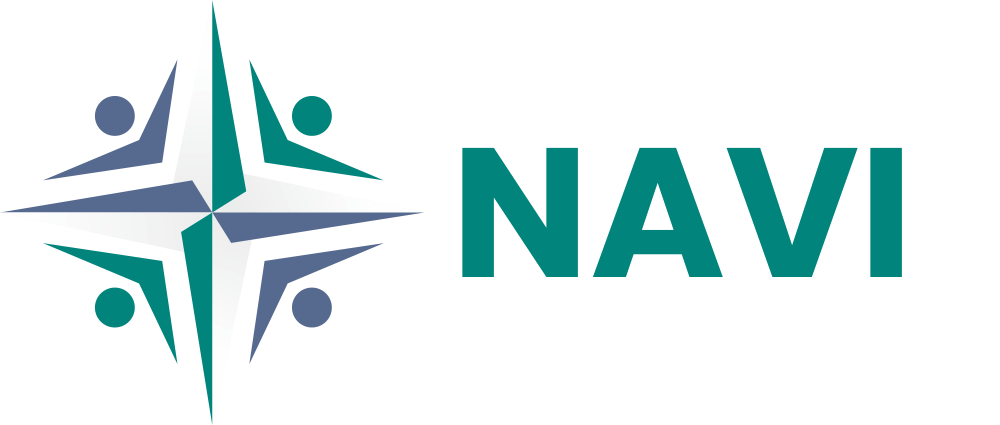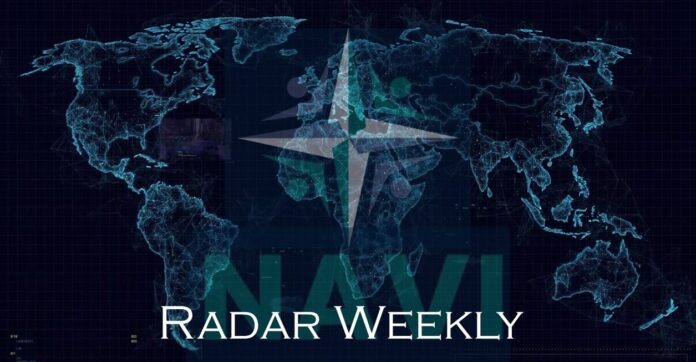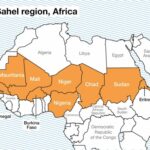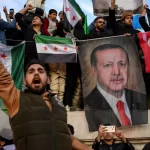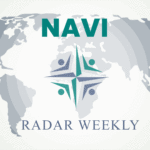Focus Point: Security and Defense Policy-Emerging Threats and Global Risks
2024 is a giant test of nerves for democracy | The Economist
The Economist | 11.02.2024
A warning from election results so far—and what follows in America, Europe and India.
Around half the world’s population, or some 4bn people, live in places that are holding elections this year. These polls will decide who governs over 70 countries. But together they also represent a big test for the health of democratic systems; for over a decade there have been fears that democracy as a political ideal is ailing. By February 14th, when Indonesia went to the polls, we estimate that countries with 770m people had cast ballots (or prevented their citizens from doing so): or roughly 18.5% of the year’s total. That makes it possible to take an initial look at how the 2024 democracy test is going. The short answer is: not particularly well. Read more…
Focus Point: Security and Defense Policy- Emerging Threats and Global Risks
Courage in the Face of Tyranny – Remembering Alexei Navalny | EGMONT
Joris Van Bladel | 19.02.2024
The question remains if Navalny’s death may signify the so-called black swan that announces the unexpected, yet significant event that may irreversibly change the state of affairs in Russia. Unfortunately, we do not expect that Navalny’s death will cause major upheaval in Russian society. Most probably, we will see an asymmetric response: Russian society – with exception of the absolute minority who saw in Mr. Navalny a source of hope and an alternative for Putin’s reign – will remain indifferent. Two arguments may underscore this statement:
” We know that a minority of about 15 to 20 percent of the Russia population is eager for major political change in Russia, that a cohort of about the same strength is supporting the regime in the most fanatical way, leaving about 60 to 70 percent of the population that support the regime conditionally. Moreover, since the start of the war, February 2022, we have witnessed an increased and ruthless repression, first and foremost, against those who oppose the regime even through the most innocent expression. What is left for Putin’s opposition is fear, isolation and depression. It is clear, in an authoritarian regime, courage is required for those who resist. Currently, it is but a flower in the snow on a sidewalk in Moscow.” Read more…
Focus Point: Security and Defense Policy-Defense Discussions
Six quotes from the Munich Security Conference | International Intrigue
Valentina Calvi| 19.02.2024
The 61st annual Munich Security Conference took place in the city’s Bayerischer Hof Hotel over the weekend, bringing together world leaders, ministers, spy chiefs, and more. Touted as the ‘Davos of defence‘, its long-standing motto is “peace through dialogue“.
Here are six of the weekend’s key quotes you need to know, and why.
– “Ukraine has already shattered myths” – Ukraine’s president, Vlodymyr Zelenskyy
– “What really provokes an aggressor is weakness” – Estonia’s prime minister, Kaja Kallas
– “Isolation is not insulation” – The US vice president, Kamala Harris
– “Hamas is an idea, and you don’t kill an idea” – The EU’s foreign affairs chief, Josep Borrell
– “Good partners provide choices, smart partners take some of those choices” – India’s foreign minister, S. Jaishankar
-“The world economy is like a big ocean that cannot be cut into isolated lakes” – China’s foreign minister, Wang Yi. Read more…
Focus Point: Security and Defense Policy- Russia-Ukraine War
Russia says it has crushed the last pocket of resistance in Avdiivka to complete the city’s capture | The Associated Press
Susıe Blann | 19.02.2024
The sides were deeply uneven in favor of the Russian forces, he said, quoting Ukrainian intelligence assessments. “If we are talking about infantry, it’s 1 to 7. If we are talking about military vehicles it’s 1 to 8 and in terms of artillery, it’s 1 to 11, he said.
Some Western military analysts believe that Ukraine could counter Russia’s attempt to build up on its Avdiivka success by trying to erect new defense lines in that immediate area and deploying fresh units to hold back Kremlin’s forces.
Even so, the threat of ammunition shortages hangs over Ukraine’s military, with Russia aiming to exploit the moment as the United States struggles to get political agreement for more aid and Europe strives to increase production.
The proposed $61 billion U.S. aid package for Ukraine is seen as crucial for a Ukrainian victory. Without U.S. funding, Ukraine is likely to start losing the war, analysts say. “Delays in Western security assistance to Ukraine are likely helping Russia launch opportunistic offensive operations along several sectors of the front line in order to place pressure on Ukrainian forces along multiple axes,” the Institute for the Study of War said in an assessment late Sunday. Read more…
Focus Point: Security and Defense Policy-Defense Discussions
Dispatch from Munich: The lessons of appeasement for US lawmakers withholding support for Ukraine|The Atlantic Council
Frederick Kempe| 20.02.2024
The stench of appeasement hung over the Munich Security Conference this past weekend, leaving more than a few European leaders making comparisons to September 1938. That was when a very different Munich meeting placated a murderous dictator—with disastrous consequences.
It was then that British Prime Minister Neville Chamberlain, meeting with Nazi leader Adolf Hitler and their French Republican and Italian fascist counterparts, signed off on the Third Reich’s annexation of the Western part of Czechoslovakia (which the Germans called Sudetenland), naively hoping that would allow them to avoid a larger European war.
With the two-year mark of Russian dictator Vladimir Putin’s full-scale invasion of Ukraine coming up this week—and with his ongoing war and occupation of sovereign Ukrainian territory—it’s worth reflecting on the dynamics behind the 1938 Munich Agreement and Chamberlain’s subsequent “Peace for Our Time” speech, as they may hold lessons for US lawmakers in the House of Representatives who continue to balk at approving urgently needed support for Ukraine after four months of dithering in Congress.
Hitler had threatened to unleash a European war unless the leaders of Britain, France, and Italy agreed to German annexation of the Sudetenland, a border region with an ethnic German majority. “My good friends,” Chamberlain said in a statement in front of 10 Downing Street, “for the second time in our history, a British prime minister has returned from Germany bringing peace with honor. I believe it is a peace for our time . . . Go home and get a nice quiet sleep.”
“The lesson of Munich, then and now, is that the cost of countering a despot will only grow the longer democracies wait to do so. As Sikorski said in Munich, “I have more doubts about us than the Ukrainians.” If the United States fails to step up to the moment this year, he said, “it could affect the national-security calculations of every country on Earth. We are at a dramatic moment, one of terrible foreboding.” Read more…
Focus Point: Emerging Technologies & Data – Cybersecurity
US Bolsters Cybersecurity of Ports Over CCP Threat | NTD
Wim De Gent |21.02.2024
The White House on Feb. 21 announced new measures to strengthen cybersecurity of U.S. ports and maritime supply chains, following the same-day release of a Maritime Advisory report. An advisory from the U.S. Department of Transportation warned that foreign-built port equipment features vulnerabilities that may be used to impact or harm global maritime supply chains, pointing specifically to the dangers of software and hardware developed in China. Read more…
Focus Point: Regional Security- NATO
Biden paves way for Mark Rutte to lead NATO — and confront Putin |Politico
Alexander Ward, Paul Mcleary and Stuart Lau |21.02.2024
President Joe Biden is supporting Dutch Prime Minister Mark Rutte to become the next NATO secretary general, a U.S. official said Wednesday.
Biden’s support is likely to sway more allies to get on board with Rutte’s nomination, after months of jockeying between him and several other European leaders for the job. The U.S. official was granted anonymity to reveal the president’s support on a matter he hasn’t backed publicly.
Rutte has a ways to go before any decision is made. Under NATO rules, the secretary general has to be decided by unanimous consent, meaning that Rutte still has to win the backing of all 31 member nations. Any candidate for the job must get through Turkey and Hungary, which have proven the biggest hurdles to accepting new members. Turkey has reportedly asked for reassurances before backing Rutte, while Hungary has had longstanding disagreements with the Dutch premier. Read more…
UK joins US in backing Rutte to lead NATO |Politico
Focus Point: Emerging Technologies & Data- Artificial Intelligence
European AI Office | The European Commission
The European Commission| 21.02.2024
The European AI Office will support the development and use of trustworthy AI, while protecting against AI risks. The AI Office was established within the European Commission as the centre of AI expertise and forms the foundation for a single European AI governance system.
The EU aims to ensure that AI is safe and trustworthy. For this purpose, the AI Act is the first-ever comprehensive legal framework on AI worldwide, guaranteeing the health, safety and fundamental rights of people, and providing legal certainty to businesses across the 27 Member States.
The AI Office is uniquely equipped to support the EU’s approach to AI. It will play a key role in implementing the AI Act by supporting the governance bodies in Member States in their tasks. It will enforce the rules for general-purpose AI models. This is underpinned by the powers given to the Commission by the AI Act, including the ability to conduct evaluations of general-purpose AI models, request information and measures from model providers, and apply sanctions. The AI Office also promotes an innovative ecosystem of trustworthy AI, to reap the societal and economic benefits. It will ensure a strategic, coherent and effective European approach on AI at the international level, becoming a global reference point.
For a well-informed decision-making, the AI Office collaborates with Member States and the wider expert community through dedicated fora and expert groups. These combine knowledge from the scientific community, industry, think tanks, civil society, and the open-source ecosystem, ensuring that their views and expertise are taken into account. Grounded in comprehensive insights of the AI ecosystem, including advances in capabilities, deployment and other trends, the AI Office fosters a thorough understanding of potential benefits and risks.
Tasks of the AI Office
- Supporting the AI Act and enforcing general-purpose AI rules
- Strengthening the development and use of trustworthy AI
- Fostering international cooperation
- Cooperation with institutions, experts and stakeholders. Read more…
Focus Point: Security and Defense Policy- Russia-Ukraine War
Franco-German brake delays Ukraine arms | Politico
Jakob Hanke Vela with Zoya Sheftalovıch | 21.02.2024
Franco-German brake: But the European Peace Facility (EPF), as the fund is known, is being held up by the EU’s supposed engine: Behind the scenes, France and Germany are delaying an agreement on the aid.
Berlin’s view: Germany’s demand, first reported by my colleague Jacopo Barigazzi, boils down to a question of money. Berlin has been financing one-quarter of the EU fund, as contributions are calculated based on national income. Germany now wants a rebate, as it’s also been the biggest donor of bilateral aid to Ukraine.
Not helping: Diplomats have accused some EU countries of using EPF funds to modernize their own militaries, and then sending their old kit to Ukraine. As Playbook scooped last year, Estonia claimed the value of new, modern weapons from the EU fund as reimbursement for Soviet-era howitzers that it sent to Ukraine — even though it had already planned to replace them before Russia started its full-scale invasion.
Paris’ view: France’s demand, backed by Greece and Cyprus, is over how the EU money should be spent. France insists on a “Buy European” clause for defense purchases, to ensure any gear that’s purchased with EU money is also made here. “The goal is to spend better and to spend European,” a French diplomat told Jacopo. But other countries warn this boost for EU industry would come at the cost of delays in getting military kit to Ukraine. Read more…
Focus Point: Security and Defense Policy- Russia-Ukraine War
It’s Time to Declare Putin an Illegitimate Leader | Foreign Policy
Aliona Hlivco and Mikhail Khodorkovsky | 22.02.2024
Russian autocracy has crossed a point of no return. What began as a flawed but aspiring democracy in the early 1990s has morphed into a vicious regime that attacks its neighbors, stifles expression at home, silences opposition voices, and imprisons or assassinates those who dare to speak up. It is high time for governments, parliaments, and nongovernmental organizations around the world to unequivocally declare Russia’s upcoming election unlawful and its preordained victor an illegitimate president. Read more…
Focus Point: Security and Defense Policy- Russia-Ukraine War
Statement by the NATO-Ukraine Council marking two years of Russia’s full-scale invasion of Ukraine | NATO
NATO-Ukraine Council | 24.02.2024
A strong, independent, and democratic Ukraine is vital for the stability of the Euro-Atlantic area. Ukraine’s fight for its independence, sovereignty, and territorial integrity within its internationally recognised borders directly contributes to Euro-Atlantic security. In the NATO-Ukraine Council, Allies and Ukraine are working closely and taking decisions together, as equals, to support Ukraine’s further integration with NATO, in line with Vilnius Summit decisions. Ukraine’s future is in NATO. Allies and Ukraine stand together. Read more
Thank you very much for reading.
The NAVI Research Institute is the research division of NATO Veterans Initiative - NAVI that provides a unique perspective to transatlantic leaders and societies on peace and security through the lens of NATO's founding principles of rule of law, democracy, human rights, and individual liberties. The NAVI Research Institute was officially established by the NAVI Board on July 16th, 2023.
